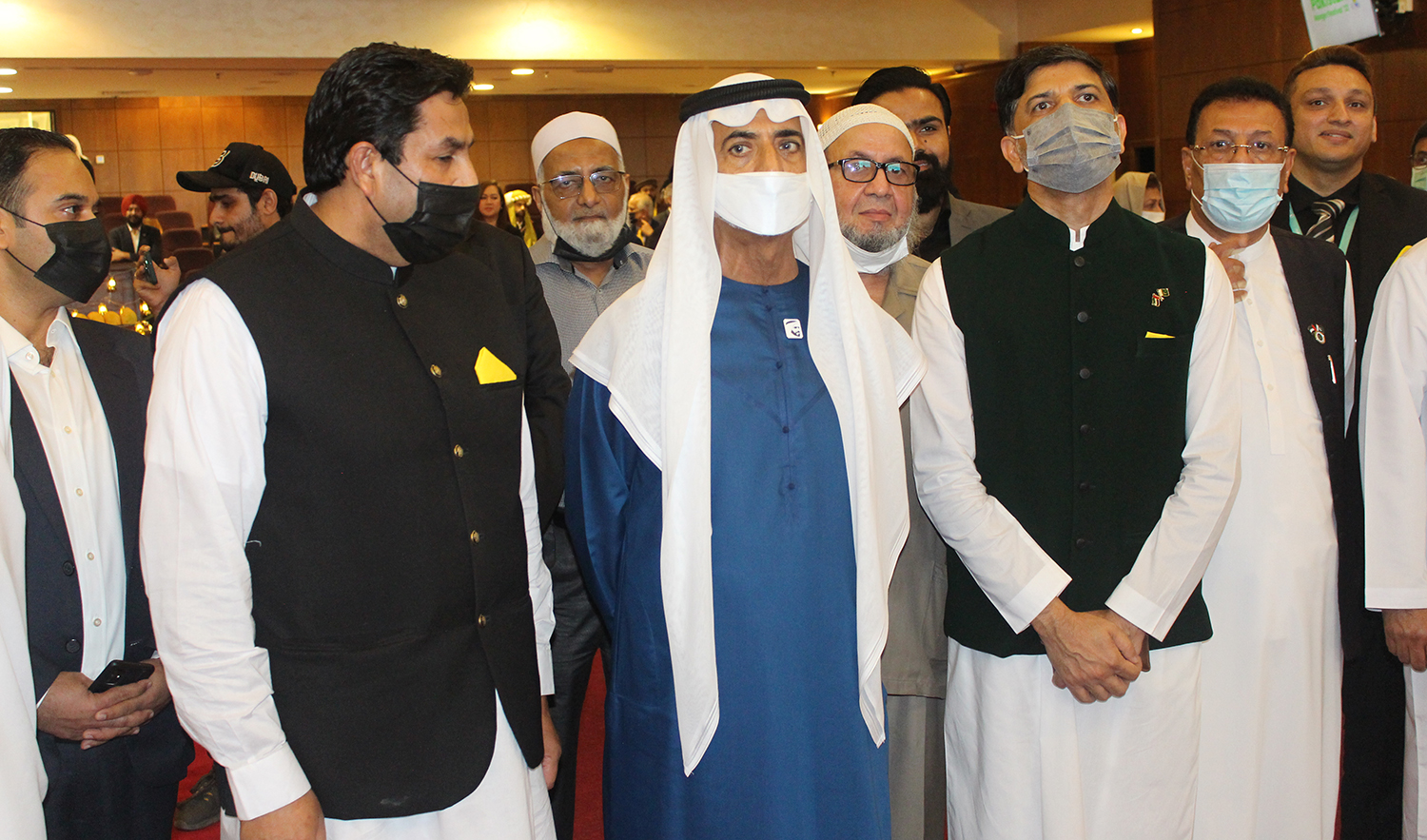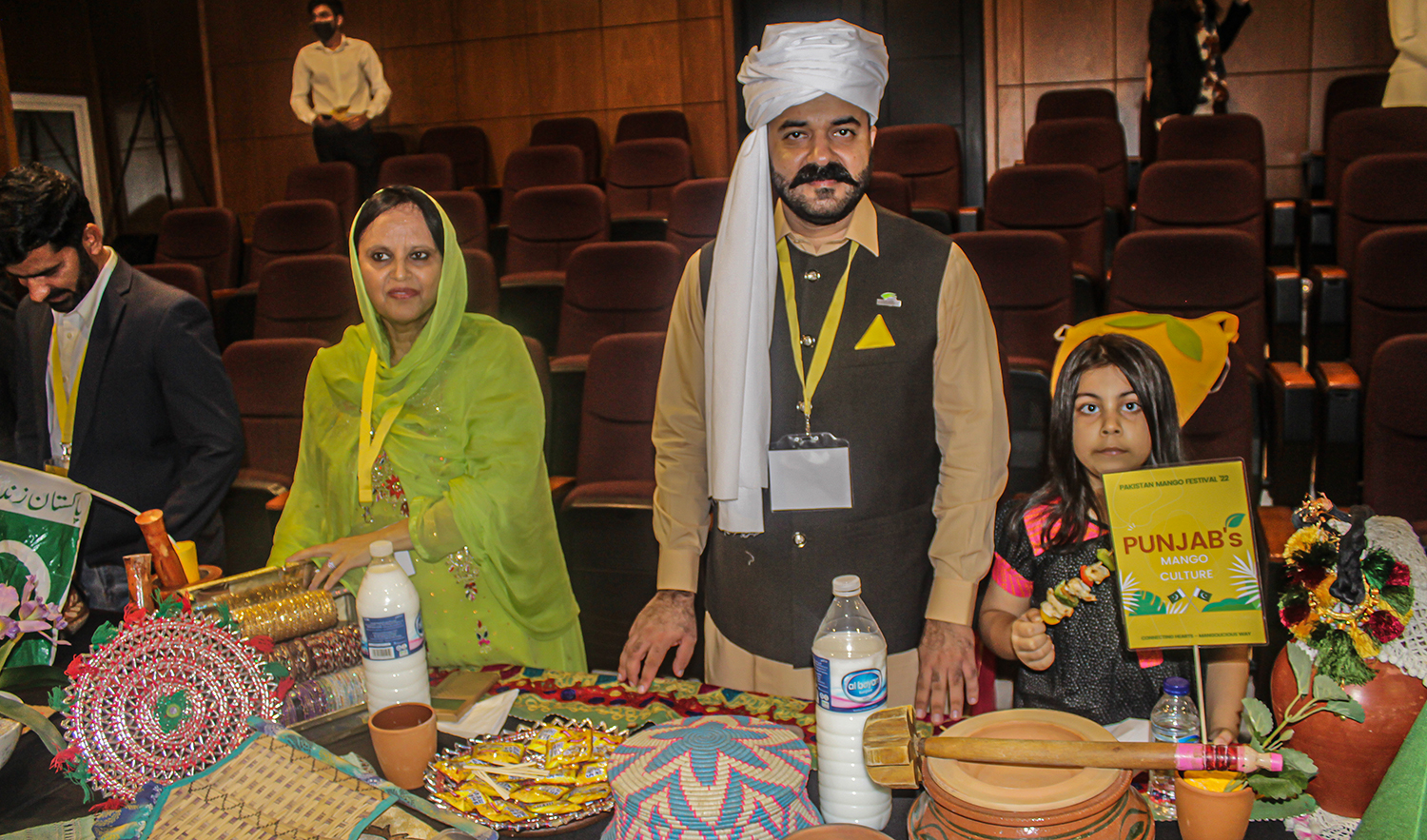DUBAI: Pakistani mangoes drew international attention in Dubai over the weekend, during a festival organized to celebrate the South Asian king of fruits and boost the country’s exports and diplomacy.
Pakistan is the world’s fifth-largest producer of mangos after India, China, Thailand and Indonesia, with annual harvests of around 1.8 million tons. While most of the produce is consumed locally, it is also one of the top exporters of the yellow succulent fruit, especially to the Middle East, UK, US and some EU countries.

UAE Minister of Tolerance Sheikh Nahyan bin Mubarak Al-Nahyan opens Pakistan Mango Festival 2022 in Dubai on July 1, 2022. (AN Photo)
The two-day Pakistan Mango Festival 2022, organized by the Pakistan Association Dubai, was opened on Friday by UAE Minister of Tolerance Sheikh Nahyan bin Mubarak Al-Nahyan, with guests including diplomats and business players not only from the Gulf state, but also the US, UK, Philippines, South Korea, Lithuania, Ghana, Egypt, and more.
“The idea of this festival was to re-introduce some of the varieties that are not there or are not being introduced the way they should be,” Pakistan’s Consul General to the UAE, Hassan Afzaal Khan, told Arab News.
He said 15 varieties of Pakistani mangoes, including Chaunsa, Langra, Sindhri, Anwar Ratool, Dusehri, Saroli, Almas, Fajri were up for degustation during the festival.
“Only 150,000 ton of mangos are exported, so we still have a huge space, and we are able to package them and introduce them to the market in such ways. I am confident that we can claim a big market share,” Khan said.

Different varieties of Pakistani mangoes are presented to guests at Pakistan Mango Festival 2022 in Dubai, UAE, on July 1, 2022. (AN Photo)
Another purpose of the festival was diplomacy as South Asia has for centuries used the sweet fruit as a way to smoothen political relations. The fruits are often used as a gesture of friendship and goodwill and presented as gifts by national or political leaders.
“Pakistan has always used mangoes for diplomacy,” Dr. Faisel Ikram, president of the Pakistan Association Dubai, said. “Today’s event is a pure diplomacy event where we invited foreign missions, consul generals, business councils and government officials to come and see what Pakistan has to offer.”
Stalls representing Pakistani provinces treated the guests to unique mango dishes that originating from each of the regions, including mango achar, chutneys, mango biryani, salads and desserts.
“I have tasted many mango varieties and dishes made of mangoes here today, (and) though I do not remember the names of all, I enjoyed them thoroughly,” Muslima Zhumabek, the wife of the consul general of Kazakhstan, told Arab News.
Another guest, Barry Bedford, COO of Mediclinic Dubai said the varieties of Pakistani mango he tried had “brilliant taste,” as he praised the festival initiative: “This event celebrates people coming together, which sets an amazing example.”












